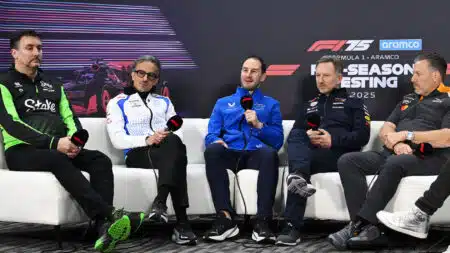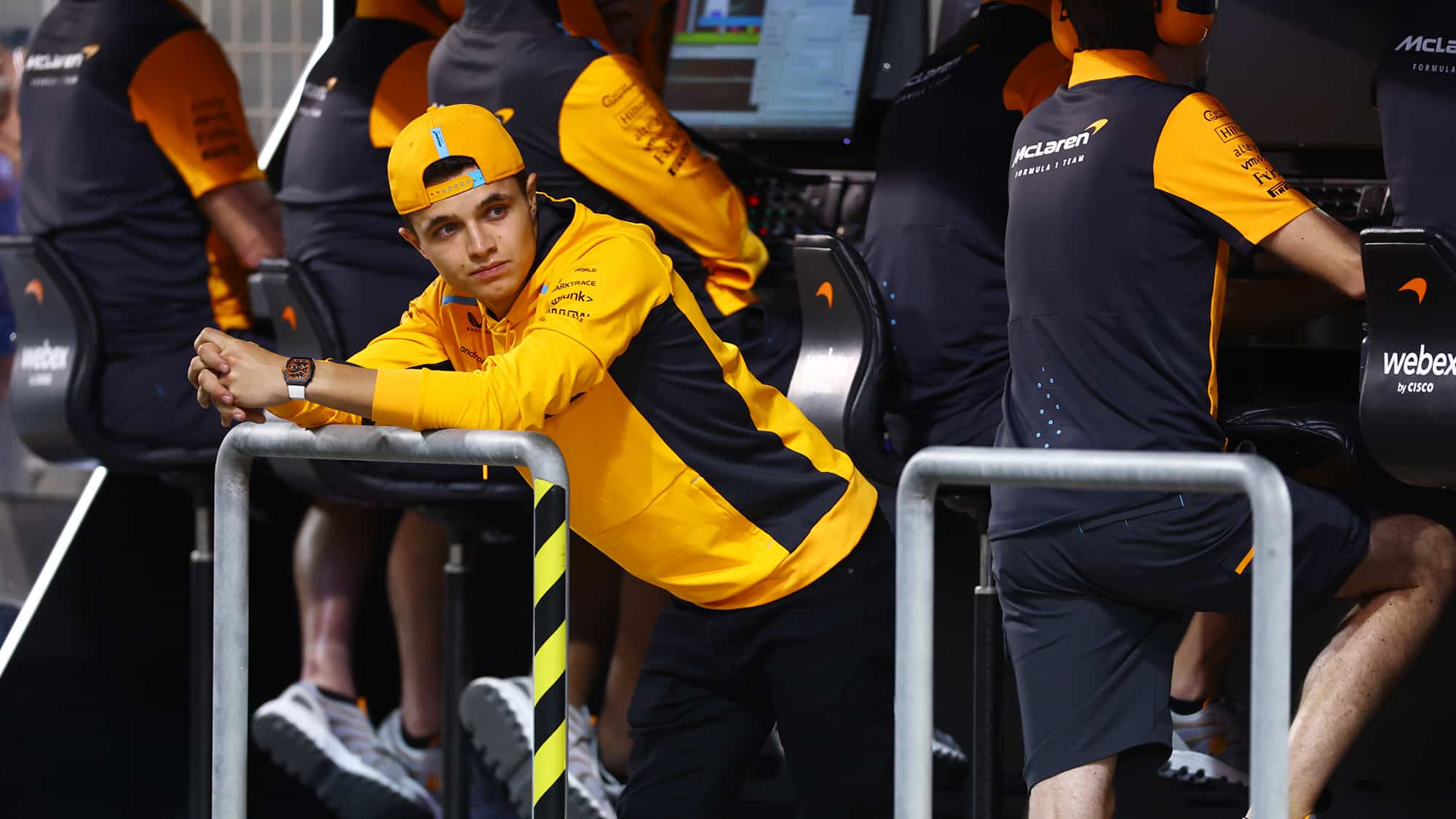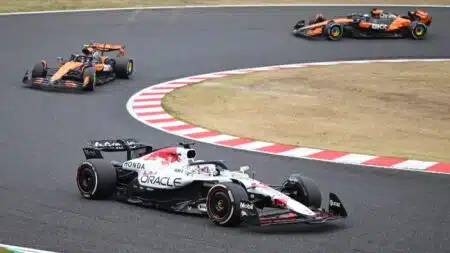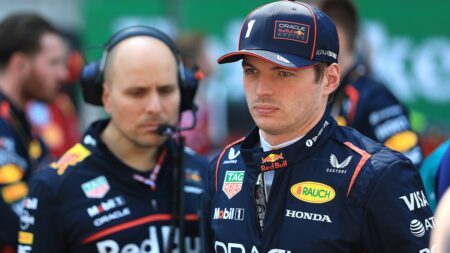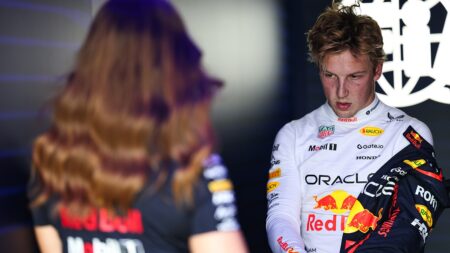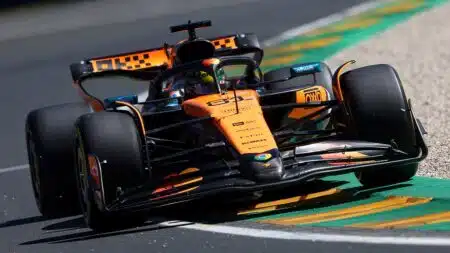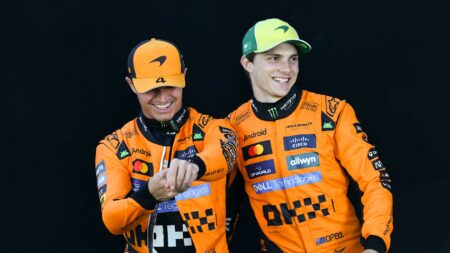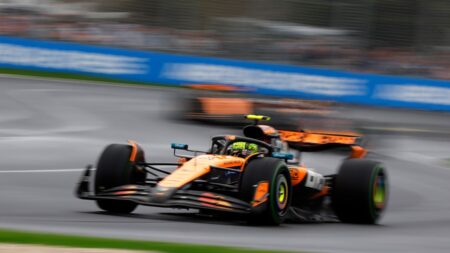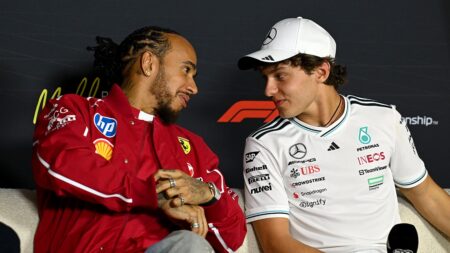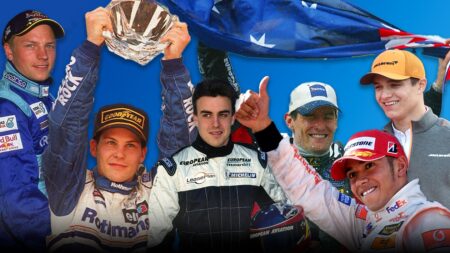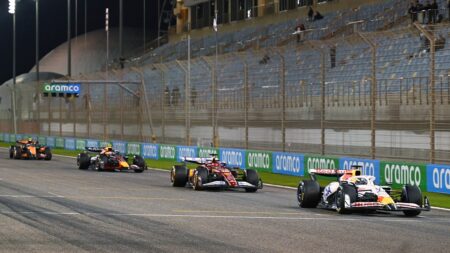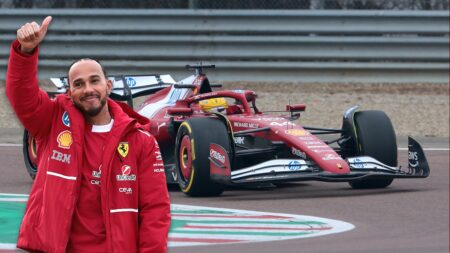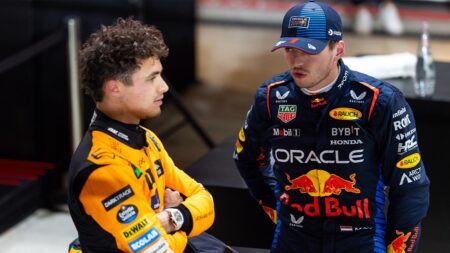Listening to the McLaren team at the launch of its new Formula 1 racing car, the MCL60, there was a definite sense of controlling expectations for the season ahead. “There are some areas of the car that will be improved by developments in the early stages of the season,” said new team principal Andrea Stella.
“So [although] we are happy we are not entirely happy for the launch car, but optimistic that we should take a good step soon… There are some areas in which we realised a little late to take development in some really strong directions. So, we have not necessarily been able to capitalise on this direction in the very short term.”
That sounds like a technical team in the middle of a re-evaluation of its car design and development direction. Lando Norris has been saying for at least the last two years that there is something fundamentally wrong in the traits of the team’s cars. He’s not been making a fuss about it in public but whenever he’s been questioned specifically about car limitations he has been very consistent in saying that there are traits which have made them very tricky to fully exploit. Daniel Ricciardo once told of being at an airport and bumping into his McLaren predecessor Carlos Sainz who said, “A bit tricky eh?” and that he’d replied, “Yeah, thanks for telling me.” So the underlying problem – aerodynamic in nature – has been there for three years at the very least, over two completely different sets of aero regulations.
The spotlight over the last couple of years was on why Ricciardo could not get up to speed and so Norris’s comments haven’t really had much impact. He was qualifying and racing respectably, so it seemed it was just a problem of Ricciardo not adapting. Norris has insisted all along that’s not the case. He has found a way of driving around the odd traits of the last few cars on a knife edge, but in the certainty they shouldn’t feel like that. They have poor corner entry stability but poor rotation too, the balance shifting early in the corner, particularly slow corners.
Technical director James Key in summarising last season, said: “The problems were in different windows this year compared to ’21 but some of those driver comments sound a bit familiar from ’21. It’s made us step back and think, ‘Are we missing something here?” We’re waiting for this new wind tunnel to come along and we know we’re going to learn a huge amount from it with all the new technology. So is there something we’re not understanding with this one?’ That was a few months ago. Has something been discovered but too late to incorporate into this season’s launch car?
It’s easy to imagine Norris’s frustration in all this. Reading between the lines, he’s saying, “I’ve been telling you this for years!”
“Racing is a people business, not only a technology one”
Because of Ricciardo’s struggles Norris has effectively been the team leader for the last two seasons but that role is now more explicit given the recruitment of the rookie Oscar Piastri to replace the experienced Ricciardo. Norris is a very likeable personality, bubbly, funny, with a very strong sense of realism. But, as a very young guy and someone who was taken on as a rookie back in 2019, maybe the team has been guilty of not taking him seriously enough, of not following his lead. And maybe he has been guilty of not expressing that lead strongly enough.
Engineers are prone to ignoring driver comments if they don’t tally with the data they are seeing. Rather than ignoring them, the really good engineers seek to understand the disparity. But sometimes a driver needs to be forceful, not just in what he’s saying but in how he’s saying it. It seems to be something Norris is coming to understand.
“There’s definitely been a little bit more of a push, from my side, from last year into this year to not just try to create the [theoretical] quickest car. I believe in order for us to start taking the bigger steps, we need to change some more fundamental things, some things that I think as a team we’ve struggled with for the past three to four years that I’ve been part of McLaren… It’s something I pushed pretty hard on last season. These little things that just keep coming up with every different car… things which are very similar, which we were not able to understand or change.
“There are things we really need to try to attack, traits we need to remove from the car or to change it in some ways…” He acknowledges that he has made a change to “the way I go about things, the way I try to voice my opinions or add input to different circumstances. I don’t think it’s changing a huge amount. It’s just continuing to be open for criticism, giving criticism when it needs to be done, but all for the right reasons and for positive change from my side and from their side. And that just comes with honesty and getting to know people. I think it’s just integrating myself even more with the team here back at [the factory], spending more days here to be open for questions, and just playing an even bigger role from that perspective.”
It’s another fascinating case study in how racing is a people business, not only a technology one. He recently re-signed to the team to the end of 2025 and states, “I signed for those years because I believe with our new tunnel and other things which are coming McLaren is going to become very competitive by 2024-25.” But if it’s not… there are teams lining up to sign him.
Since he began covering grand prix racing in 2000, Mark Hughes has forged a reputation as the finest Formula 1 analyst of his generation
Follow Mark on Twitter @SportmphMark
